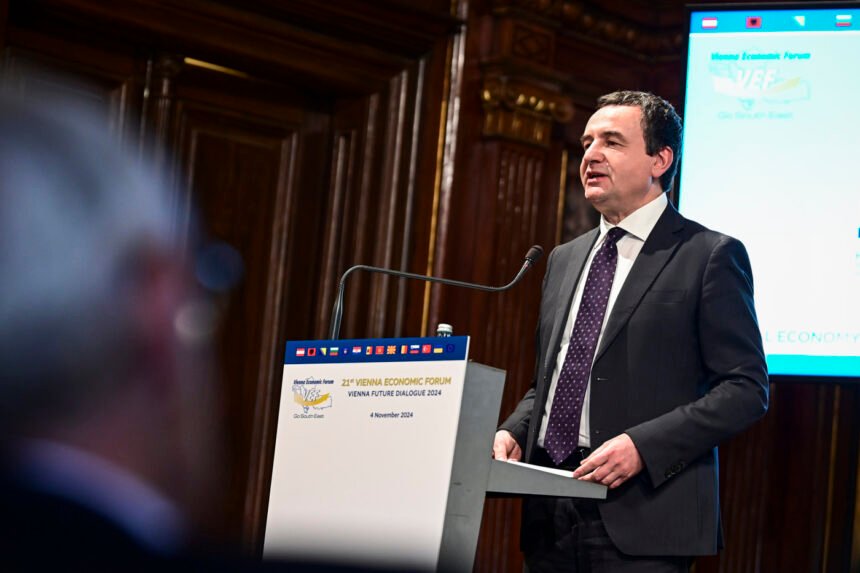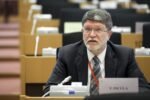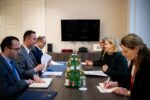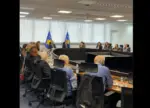Highlighting the achievement of a Free Trade Agreement with EFTA member states and Kosovo’s advancements in CEFTA representation, he stated that for Kosovo, economic cooperation is not merely a political choice; it is a strategic necessity. “Our success and progress depend on our ability to create an environment that promotes cross-border trade, attracts investment, and builds bridges with neighboring countries,” he further emphasized.
On this occasion, the Prime Minister also spoke about the importance of regional cooperation and the successful 10-year anniversary of the Berlin Process. He underscored his announcement made during the Berlin summit concerning Kosovo’s decision, starting from January 1 of next year, to unilaterally allow Bosnian and Herzegovinian citizens to enter Kosovo using identity cards, as outlined by the mobility agreement signed in Berlin two years ago under the Berlin Process framework.
Without freedom of movement, Kurti noted, “we will not be able to enhance the mobility of workers, students, and professionals, which is essential both for attracting foreign direct investments and for the growth of our economies.”
He added that economic cooperation is necessary, not only because it provides resilience to face crises and shocks but because it enables us to remove barriers and create new opportunities for our citizens.
“When people think of economic cooperation, they should think more about opportunities and benefits rather than challenges and risks. And we have shown that we are standard-bearers when it comes to rules and values. In recent years, we have demonstrated that democracy and the economy go hand in hand. Today, there are some powers and superpowers in the world trying to show that development does not require democracy. Our country may not be large, but it is a powerful example that democratic progress and economic growth go hand in hand, reinforcing each other,” Kurti stressed.
He supported this by citing indicators of economic performance, social policies, citizen support, employment, increases in pensions, wages, and minimum wages, all while showing progress in democracy, rule of law, civil liberties, and political rights, as evidenced in various international reports.
However, he emphasized that our country’s progress is interlinked with the progress of our neighboring countries. Therefore, we are committed to working together, as we believe that everyone benefits when the region is more prosperous and secure.
“With the exception of our northern neighbor, all Western Balkan countries are either NATO members or have NATO present within them, and all aspire to join the European Union,” he added.
“This is why economic cooperation and integration cannot be limited to growth statistics and trade agreements. It also involves fostering democratic resilience within nations and democratic solidarity among nations. We do not see economic cooperation as a zero-sum game but as an opportunity for mutual achievements. Sustainable partnerships are those based not on commodities or goods but on a shared commitment to the values of democracy, human rights, and the rule of law. When we combine democracy with the economy, I believe we gain what we need most: economic security while preserving human dignity,” Prime Minister Kurti stated in closing.







